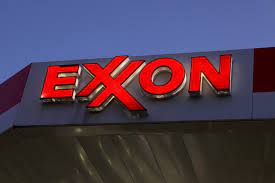
According to several industry sources, oil output at the massive Exxon-led Sakhalin-1 Russian Pacific project has been halted due to the U.S. major's refusal to accept local insurance for tankers after Western insurers withdrew due to sanctions.
Western insurers have pulled coverage from tankers operated by Russia's largest shipping group, Sovcomflot, which was sanctioned following Moscow's invasion of Ukraine.
"Exxon has refused to take Sovcomflot's tankers," one industry source said. Some cargoes meant for supplies to Indian refiners were also hit as Exxon did not recognize the alternative cover Sovcomflot had arranged from Russian insurers, according to the sources.
There were no comments on the issue available from Sovcomflot and Exxon.
The events have occurred as the European Union prepares to impose a ban on Russian oil tanker insurance, demonstrating the significant impact ship insurance and re-insurance guarantees can have on operations.
Rosneft, Russia's state oil company and a partner in the Sakhalin-1 project, has blamed Exxon for falling output, claiming that the project has produced little oil since mid-May.
Exxon's Russian subsidiary, Exxon Neftegas Ltd, has stated that it is having difficulty chartering tankers due to sanctions.
The Russian newspaper Kommersant was the first to report on Monday that Sakhalin-1 production had been halted due to Exxon's refusal to work with Sovcomflot.
Oil output at the Sakhalin-1 project fell to 10,000 barrels per day (bpd) earlier this year from 220,000 bpd prior to Russia's invasion of Ukraine on February 24.
Earlier this month, Russian President Vladimir Putin signed a decree establishing a new operator for Sakhalin-1, which will be managed by Rosneft subsidiary Sakhalinmorneftegaz-Shelf.
The decision empowers the Russian government to decide whether foreign shareholders can keep their stakes in the project, giving them one month to express interest or lose their stakes.
Rosneft has a 20% stake in Sakhalin-1, ONGC Videsh, India's state-run ONGC's overseas investment arm, has a 20% stake, and Japan's state-backed oil producer SODECO has the remaining 30%.
Exxon announced in August that it was in the process of selling its 30% stake in the oil and gas project to "another party," without naming it.
(Source:www.usnews.com)
Western insurers have pulled coverage from tankers operated by Russia's largest shipping group, Sovcomflot, which was sanctioned following Moscow's invasion of Ukraine.
"Exxon has refused to take Sovcomflot's tankers," one industry source said. Some cargoes meant for supplies to Indian refiners were also hit as Exxon did not recognize the alternative cover Sovcomflot had arranged from Russian insurers, according to the sources.
There were no comments on the issue available from Sovcomflot and Exxon.
The events have occurred as the European Union prepares to impose a ban on Russian oil tanker insurance, demonstrating the significant impact ship insurance and re-insurance guarantees can have on operations.
Rosneft, Russia's state oil company and a partner in the Sakhalin-1 project, has blamed Exxon for falling output, claiming that the project has produced little oil since mid-May.
Exxon's Russian subsidiary, Exxon Neftegas Ltd, has stated that it is having difficulty chartering tankers due to sanctions.
The Russian newspaper Kommersant was the first to report on Monday that Sakhalin-1 production had been halted due to Exxon's refusal to work with Sovcomflot.
Oil output at the Sakhalin-1 project fell to 10,000 barrels per day (bpd) earlier this year from 220,000 bpd prior to Russia's invasion of Ukraine on February 24.
Earlier this month, Russian President Vladimir Putin signed a decree establishing a new operator for Sakhalin-1, which will be managed by Rosneft subsidiary Sakhalinmorneftegaz-Shelf.
The decision empowers the Russian government to decide whether foreign shareholders can keep their stakes in the project, giving them one month to express interest or lose their stakes.
Rosneft has a 20% stake in Sakhalin-1, ONGC Videsh, India's state-run ONGC's overseas investment arm, has a 20% stake, and Japan's state-backed oil producer SODECO has the remaining 30%.
Exxon announced in August that it was in the process of selling its 30% stake in the oil and gas project to "another party," without naming it.
(Source:www.usnews.com)














